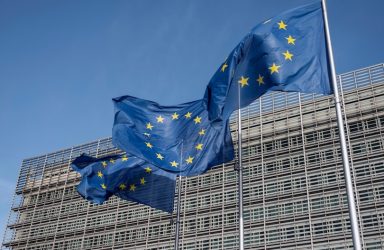The Delhi Sultanate’s Treatment of Hindus
The Delhi Sultanate’s policies toward Hindus set the stage for the cultural pluralism that defines the modern-day Indian sub-continent.
The Proliferation of Conventional Weapons: A Post-Cold War Problem
The banning of antipersonnel mines by the Ottawa Treaty in 1997 was a huge achievement in the attempts to reduce the amount of future damage caused by these devices.
What are the Main Causes and Effects of Economic Protectionism?
Lobbying, group formation, and the interests of politicians distort policy in favour of trade protectionism – despite the costs the costs imposed on the whole of society.
Why Intervention in Libya was Justified
This essay attempts to make the case for military force applied to humanitarian intervention by observing the unique case of the Libyan Revolution of 2011.
Why has it often proved more difficult to reintegrate than to demobilise soldiers following civil wars?
This essay will address the challenges faced during reintegration based on the levels presented above – individual, community, and national. In the latter of these, it will seek to address the impact of complications arising in the early stages of national DDR programmes, particularly during demobilisation.
Casting Light on EU Governance: Reflection and Foresight in an Era of Crises
A disrupted internal unity requires a delicate balance in order to maintain the EU’s position in the world.
An Analysis of the Difficulties Associated with Establishing State Responsibility for Human Rights Violations Occurring as a Result of Climate Change
Despite conclusive and significant scientific evidence to the contrary, there is still some considerable scepticism over the nature, causes and consequences of climate change. However, it is becoming increasingly apparent that extreme weather events such as floods, droughts and cyclones, as well as retreating glaciers and melting sea ice at the North and South poles, are all indicative of a warming world.
The new Russian military doctrine: more of the same?
The long-awaited publication of the Military Doctrine of the Russian Federation in February 2010 was the result of years of debate within the Russian military and political establishment. It outlines a post facto legitimization of Russia’s role in the August War against Georgia in 2008 and of other initiatives adopted by Moscow in the field of international security in the new century
The Limits of Unlearning: Liberal Feminism from the Postcolonial Perspective
We are trapped in our experiences as colonisers and colonised, and in our resulting positions of power or powerlessness. Therefore, representation of ‘subaltern women’ by white western liberal feminists remains problematic, since tied up in the notion of representation are the complications of power, knowledge and language.
Britain, Free Trade, and the Irish Potato Famine
Britain would have moved towards Free Trade in 1846-1860 even if the Irish Potato Famine had not occurred, due to the inability of the protectionist system to benefit the British economy in any significant way encouraged many to consider the alternative approach, namely free trade.




